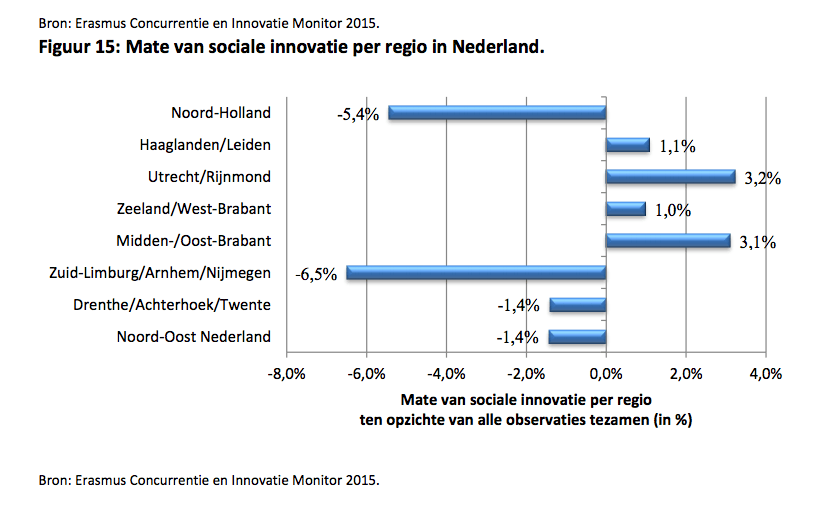
More than anywhere else in the Netherlands, radical and social innovations are realized in the Eindhoven region. On average, the share of innovations here is nearly 10% higher than in the rest of the country.
The Erasmus Competition and Innovation Monitor 2014 – 2015 presented in Rotterdam today, offers a broad view on the state of radical and social innovation in the Netherlands.
“The High Tech Campus is a springboard for innovation”
 Lead researcher prof. Henk Volberda of the Erasmus Research Institute of Management indicates that “the high tech campus in Eindhoven acts as a springboard for companies, including startups, to realize disruptive innovations.” This, according to him, is being realised by the cooperation between the Technical University Eindhoven, established companies, startups, and government agencies.
Lead researcher prof. Henk Volberda of the Erasmus Research Institute of Management indicates that “the high tech campus in Eindhoven acts as a springboard for companies, including startups, to realize disruptive innovations.” This, according to him, is being realised by the cooperation between the Technical University Eindhoven, established companies, startups, and government agencies.
The Eindhoven region also has an above average degree of typically radical innovation. This also is about 10% more than the national average. Finally, the Brainport region also scores above average on social innovation. The region is just over 3% more succesful on social innovation compared to the national average. Volberda indicates that “cooperation in the Eindhoven region in terms of both technological and social innovation pays off in higher levels of product and service innovations.”
 Some other notable findings from the survey:
Some other notable findings from the survey:
- Listed companies realize fewer radical innovations
- Knowing what is happening in the workplace is important to achieve more radical innovations
- The High Tech sector has the most disruptive innovation, the energy sector has the least
- Disruptive innovation requires more than just technological innovation. Top sectors have a too one-sided focus on technological innovation.
- Investment in research and development (R&D) and in information and communication technologies (ICT) this year fell again
- The innovativeness of Dutch companies has increased
INSCOPE – Research for Innovation from the Erasmus University Rotterdam conducts the annual Erasmus Competition and Innovation Monitor. The research is led by Professor Henk W. Volberda, Professor of Strategic Management & Business Policy at Rotterdam School of Management, Erasmus University (RSM).


